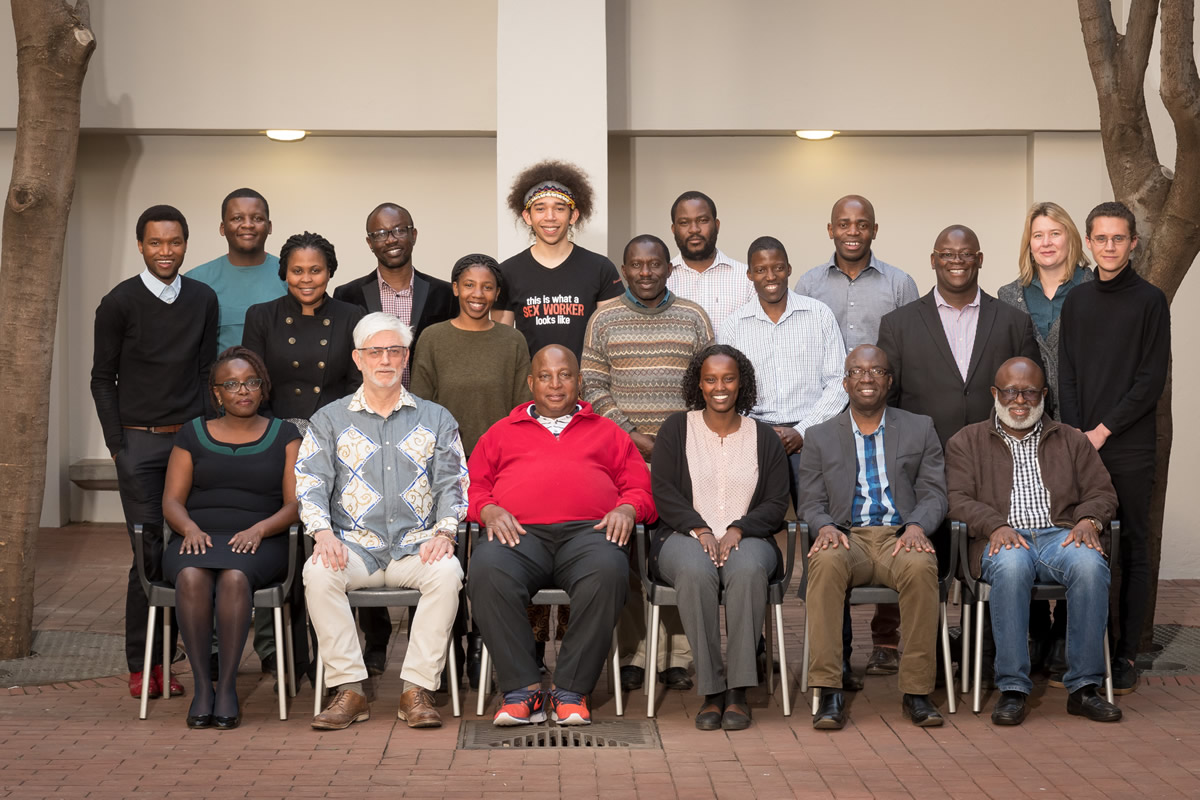On the 2 and 3 August, 2018, the Centre for Human Rights hosted a colloquium on sexual minority rights within Africa. The colloquium presented a platform for authors from around the continent to challenge and re-define how sexuality, identity, and LGBT advocacy have been constructed in Africa. In his welcoming address, Professor Frans Viljoen recognized the inspirational role of Professor Charles Ngwena in initiating and conceptualising the colloquium, and emphasises its multi-disciplinary nature. In giving background about the workshop, Professor Ebenezer Durojaye challenged the participants to interrogate how sexuality has been defined in Africa, outside of Western ideals, and outlined the aspiration of a publication following the colloquium.
The Centre invited thirteen authors from all over the continent to participate in the event. These authors were required to submit a paper in advance. During the colloquium, they presented their paper and received comments.
The colloquium began with Joan Wanhira Njagi’s Decolonising the advancement of LGBTI rights in Africa, which critically analysed the effects of colonialism on understandings of sexuality within Africa. The following presentation, given by Nelson Maparamoto, Globalised and localized identity labels among same-sex loving people in Harare Zimbabwe, juxtaposed the role of Western style identities with local understandings of sexuality to highlight the ways in which language and terminology have been used in the field. In Kenne Mwikya’s Same-sex practices in Kenya: An overview of literature from the 19th century to date, historiographical methods were used to contextualize constructions of gender and sexuality in Kenyan documentary sources. With a similar historical approach, Babere Kerata Chacha presented Do women who marry other women become men? The changing faces of women-women marriages in Africa, in which he challenged conventional understandings of relationships, gender, and power dynamics as they have been understood within the African continent. David Barnard on, Non-heteronormative African sexualities: A notion called into question, argued for the use of philosophical archaeology as a lens to examine the nuances of sexual subjects on the African continent, both past and present, to make them more accessible.
The final presentations given on the first day adopted geographical approaches to analyzing the relationship between identity and sexuality in Africa. In Raymond Kuyala’s, Mothering experiences of lesbian women in Harare, Zimbabwe, the presentation examined marriage and power in lesbian relationships in Harare, Zimbabwe. Lwando Scott closed out the first day of the colloquium with the paper, Queering the postcolony: The intersection of the black gay identity and Xhosa culture -Examining Inxeba and the aftermath, in which the role of white validation, ‘Africanness,’ and sexual identities were explored within the contexts of the recent move Inxeba.
On the second day, Nadine Lake presented Is homosexuality unAfrican? Exploring counter-discourse in the lives of lesbian traditional healers, in which she explored the impact of violent community and social practices on lesbians’ living in traditional realms. Themba Shingange gave the next presentation, Critiquing the practice of naming non-heteronormative African sexualities: A reflection from the past and indigenous practices of the black South African communities, which challenged how sexual identities have been categorized, constructed, and recognized in South Africa. With a similar country-specific approach, Godfrey Dalitso Kangaude presented Criminalization of female same-sex sexual conduct: A critical inquiry into the development of gender laws in Malawi. This paper called for a re-framing of gender and sexuality laws in Malawi to explicitly protect LGBT rights in the sphere of women’s rights.
The papers submitted all focused on various aspects of sexuality and identity on local, continental, and international spaces, with a focus on experience, theory, language, naming, and historical analyses. Conversations explored the role of Western funding, Eurocentrism, globalization, and structural power dynamics in defining sexual identities and relationships in Africa. In a similar manner, these discussions encouraged the colloquium participants to examine what it means to reject colonial models of sexuality and re-imagine identity separately from Western narratives. Furthermore, these discussions debated the intersections of race, sex, and gender in constructing sexual identities on the continent.
Professor Frans Viljoen, Professor Ebenezer Durojaye, Professor Tshepo Mosikatsana along with Dr. Christi Kruger, Dr. Annamagriet de Wet, Dr. Ciara O’ Connell, Pierre Brouard, and Godfrey Kangaunde provided critical feedback to the authors who submitted their papers to the colloquium.
The symposium required participants to critically examine the production of knowledge, the complex and diverse nature of identity, and the relationship between the public and private sphere in defining sexuality.


